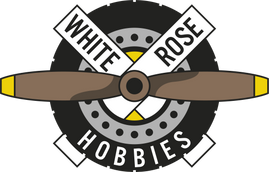
MTH Premier 20-21742-1 O Scale GE AC4400 Diesel BNSF 617 PS3
From the dawn of dieselization through its first six decades, virtually every American diesel locomotive used DC traction motors. By the early 1990s, however, a series of technological advances allowed designers to tap the inherent superiority of AC traction — namely, the ability of an AC motor to start a heavier load than a DC motor, with the same prime mover. The superior adhesion of AC power touched off a new horsepower race because, with the same number of wheels, AC traction could put more horsepower on the rails.
Two years behind rival EMD, General Electric entered the AC traction business in June 1993 with the AC4400CW — 4400 horsepower, “C” for 3-axle trucks, and “W” for wide North American cab. The new engine was basically an AC version of the Dash 9-44CW introduced the same year. The key external difference between the two engines is the large box behind the cab on the left side of the AC 4400CW, which houses much of the AC traction electronics.
Although General Electric’s AC power arrived on the scene later, its AC engines have outsold those made by EMD. One reason may be GE’s use of one inverter bank per traction motor, a design that allows the crew to cut out a single malfunctioning motor and still retain more than 80% of a locomotive’s function. On a comparable EMD AC-powered engine, an entire truck has to be taken offline if one of its three motors fails.
One area of weakness for GE was its high adhesion trucks, which were generally acknowledged to be inferior to EMD’s steerable radial truck. Later model AC4400CWs feature GE’s own version of a steerable truck, which improves adhesion on curves.
Now you can bring the brute strength of the AC4400CW to your own freight operations. This model offers the industry-leading features you expect in a Premier diesel: awesome sounds, superb detailing, see-through body grilles, a wealth of added-on details, and smooth operation at any throttle setting from a crawl to high-speed mainline service.
FEATURES:
- Intricately Detailed, Durable ABS Body
- Die-Cast Truck Sides, Pilots and Fuel Tank
- Metal Chassis
- Metal Handrails and Horn
- Moveable Roof Fans
- Metal Body Side Grilles
- Detachable Snow Plow
- (2) Handpainted Engineer Cab Figures
- Authentic Paint Scheme
- Metal Wheels, Axles and Gears
- (2) Remote-Controlled Proto-Couplers
- O Scale Kadee-Compatible Coupler Mounting Pads
- Prototypical Rule 17 Lighting
- Directionally Controlled Constant Voltage LED Headlight
- Lighted LED Cab Interior Light
- Illuminated LED Number Boards
- Operating LED Ditch Lights
- (2) Precision Flywheel-Equipped Motors
- Operating ProtoSmoke Diesel Exhaust
- Onboard DCC/DCS Decoder
- Locomotive Speed Control In Scale MPH Increments
- Proto-Scale 3-2 3-Rail/2-Rail Conversion Capable
- 1:48 Scale Proportions
- Proto-Sound 3.0 With The Digital Command System Featuring Quillable Horn With Freight Yard Proto-Effects
- Unit Measures: 19 1/2” x 2 1/2” x 4”
- Operates On O-42 Curves
- Diesel DCC Features
- F0 Head/Tail light
- F1 Bell
- F2 Horn
- F3 Start-up/Shut-down
- F4 PFA
- F5 Lights (except head/tail)
- F6 Master Volume
- F7 Front Coupler
- F8 Rear Coupler
- F9 Forward Signal
- F10 Reverse Signal
- F11 Grade Crossing
- F12 Smoke On/Off
- F13 Smoke Volume
- F14 Idle Sequence 3
- F15 Idle Sequence 2
- F16 Idle Sequence 1
- F17 Extended Start-up
- F18 Extended Shut-down
- F19 Rev Up
- F20 Rev Down
- F21 One Shot Doppler
- F22 Coupler Slack
- F23 Coupler Close
- F24 Single Horn Blast
- F25 Engine Sounds
- F26 Brake Sounds
- F27 Cab Chatter
- F28 Feature Reset
